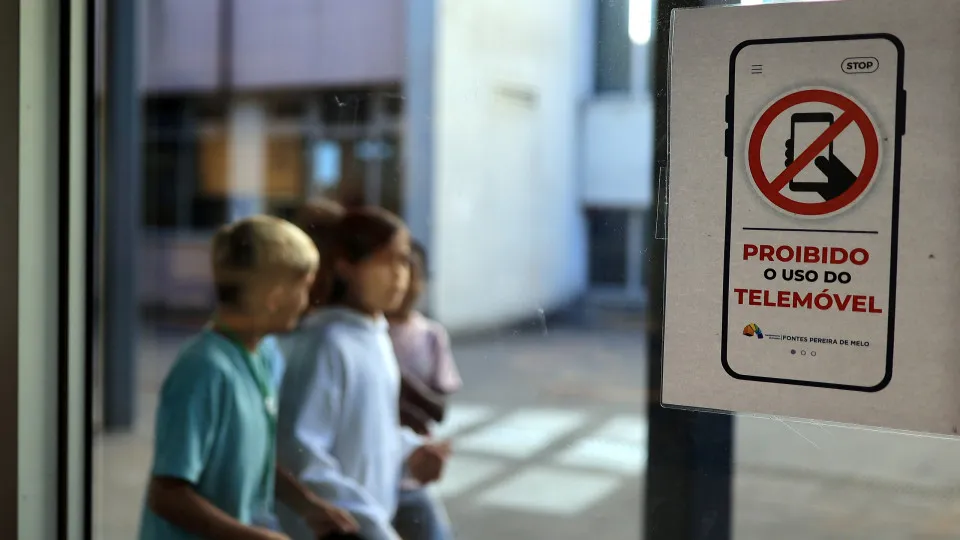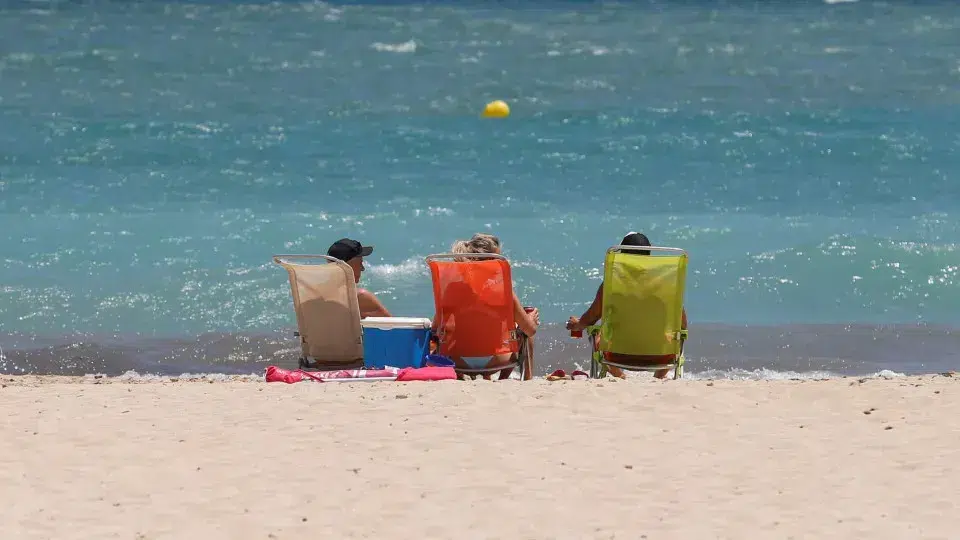
Exceptions are made for students whose native language is not Portuguese, such as Kubra, an 11-year-old Turkish girl who arrived in Portugal five days ago.
“Bom dia”, “Boa Tarde”, “Olá”, and “Obrigada” are the only Portuguese words Kubra Ecrin Centitürk can speak, but she knows that with the help of ‘Chat GPT’ and ‘Google Translate’ apps available on her Internet-enabled phone, she will be able to translate from Turkish to Portuguese what she wants to say to her classmates and teachers.
On her first day of introduction to the class, Kubra Centitürk arrives with a shy expression and backpack for her first day at a Portuguese school.
She is accompanied by her parents and an interpreter who speaks English and some Portuguese, facilitating the conversation between the school principal and the family from Turkey.
Parents Zeyner and Ramazan Centitürk describe that they have been in Portugal for five days and that their 11-year-old daughter is starting the 5th grade and is a bit anxious.
Teacher Miguel Pais, Deputy Director of Fontes Pereira de Melo Secondary School, explains that despite the rule banning mobile phones in school across all educational cycles, there is an “internal regulation” designed for exceptional situations.
“Students can use ‘smartphones’ exclusively in exceptional situations,” as is the case for students whose native language is not Portuguese, with several dozen students in this situation in the cluster.
Miguel Pais notes that educational communities are facing “an increasing number of students whose native language is not Portuguese.”
In such cases, and when students demonstrate “very low proficiency in the Portuguese language, they can use the smartphone as a translation tool to facilitate communication,” he explains.
However, there are other exceptions as well, such as “in classrooms where teaching activities are conducted, provided that it is for didactic and pedagogical purposes, with prior authorization from the teacher, who ensures proper use and equity among all students,” he adds.
Students with verified health issues monitored by electronic devices, such as glucose monitors for diabetic students, are allowed to have these devices and keep them turned on at all times, adds the teacher.
The fourth exception applies to students with other verified health problems and recommendations from the multidisciplinary team supporting inclusive education.
These students are also authorized to use phones outside the classrooms or in other areas where teaching activities are not conducted.
Carolina Soares, 10, who started today at Fontes Pereira de Melo school, is entering the 5th grade in the articulated Theater program and expresses her support for the rule prohibiting phones in school.
“I don’t have a phone. I’m not really into phones. There’s a whole world outside. Life outside is what matters, and socializing is good,” says Carolina, revealing that her favorite hobby is “painting landscapes and still lifes” and that she prefers painting “in teams, but without competition.”
According to Carolina, some children from her former school had phones from the age of seven and believed they were “more popular” because they had phones.
A friend of Carolina, Maria João Alves, aged 10 and also going into the 5th-grade Theater program, admits she has a Nokia, but it only allows for sending text messages and making calls. “It doesn’t even take photos,” she notes.
Maria João sees the absence of phones in school as positive, as it allows for more children to play with her.
“I can’t play with my friends who have phones because I’m immediately isolated and have to play alone,” she laments.
José Maria, 9, plays chess in the library and also considers the phone ban beneficial.
“I think it’s good not to have phones so I can play. If there are phones, no one plays,” concludes José Maria, while making a ‘checkmate’ move in his chess game.
This school year in this cluster, and applying general legislation, all students from preschool to the first cycle are prohibited from using ‘smartphones,’ ‘smartwatches,’ mobile phones, and mobile application devices in all school areas, both indoors and outdoors.
At the level of the 2nd and 3rd cycles of basic education—the cluster has five schools—usage of these devices is also not permitted.
“Before entering the school premises, electronic devices must be turned off and stored in backpacks, bags, or similar items,” according to the rule read by teacher Miguel Pais.
High school students are also banned from using smartphones, ‘smartwatches,’ or mobile phones “in all classroom blocks and all properly signposted areas, including classrooms.”
For high school students, before entering the classroom block, electronic devices must be “turned off, set to silent mode, and stored in backpacks or similar items,” the teacher notes.




